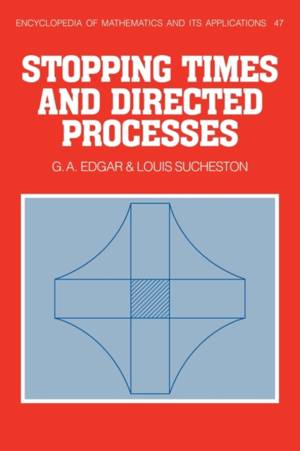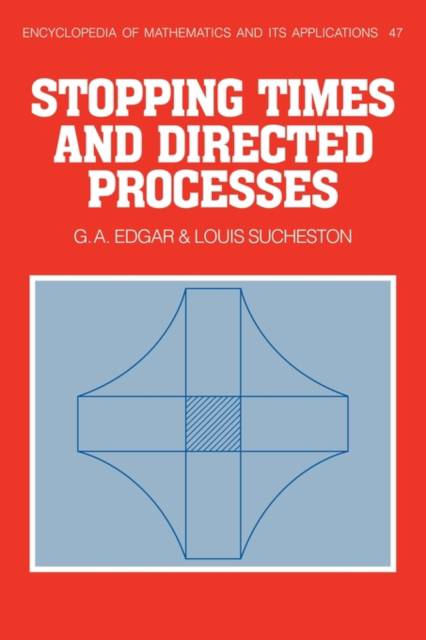
- Afhalen na 1 uur in een winkel met voorraad
- Gratis thuislevering in België vanaf € 30
- Ruim aanbod met 7 miljoen producten
- Afhalen na 1 uur in een winkel met voorraad
- Gratis thuislevering in België vanaf € 30
- Ruim aanbod met 7 miljoen producten
Zoeken
Omschrijving
The notion of "stopping times" is a useful one in probability theory; it can be applied to both classical problems and new ones. This book presents this technique in the context of the directed set, stochastic processes indexed by directed sets, and provides many applications in probability, analysis, and ergodic theory. The book opens with a discussion of pointwise and stochastic convergence of processes with concise proofs arising from the method of stochastic convergence. Later, the rewording of Vitali covering conditions in terms of stopping times, clarifies connections with the theory of stochastic processes. Solutions are presented here for nearly all the open problems in the Krickeberg convergence theory for martingales and submartingales indexed by directed set. Another theme is the unification of martingale and ergodic theorems. Among the topics treated are: the three-function maximal inequality, Burkholder's martingale transform inequality and prophet inequalities, convergence in Banach spaces, and a general superadditive ration ergodic theorem. From this, the general Chacon-Ornstein theorem and the Chacon theorem can be derived. A second instance of the unity of ergodic and martingale theory is a general principle showing that in both theories, all the multiparameter convergence theorems follow from one-parameter maximal and convergence theorems.
Specificaties
Betrokkenen
- Auteur(s):
- Uitgeverij:
Inhoud
- Aantal bladzijden:
- 444
- Taal:
- Engels
- Reeks:
- Reeksnummer:
- nr. 47
Eigenschappen
- Productcode (EAN):
- 9780521135085
- Verschijningsdatum:
- 11/03/2010
- Uitvoering:
- Paperback
- Formaat:
- Trade paperback (VS)
- Afmetingen:
- 156 mm x 234 mm
- Gewicht:
- 616 g

Alleen bij Standaard Boekhandel
+ 201 punten op je klantenkaart van Standaard Boekhandel
Beoordelingen
We publiceren alleen reviews die voldoen aan de voorwaarden voor reviews. Bekijk onze voorwaarden voor reviews.








